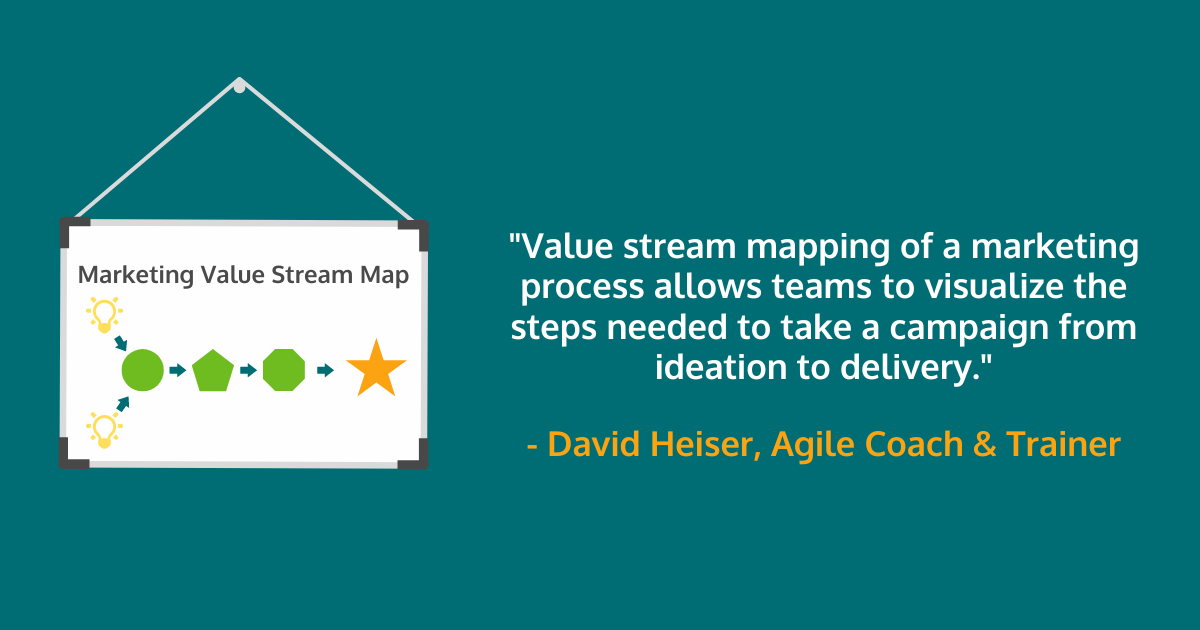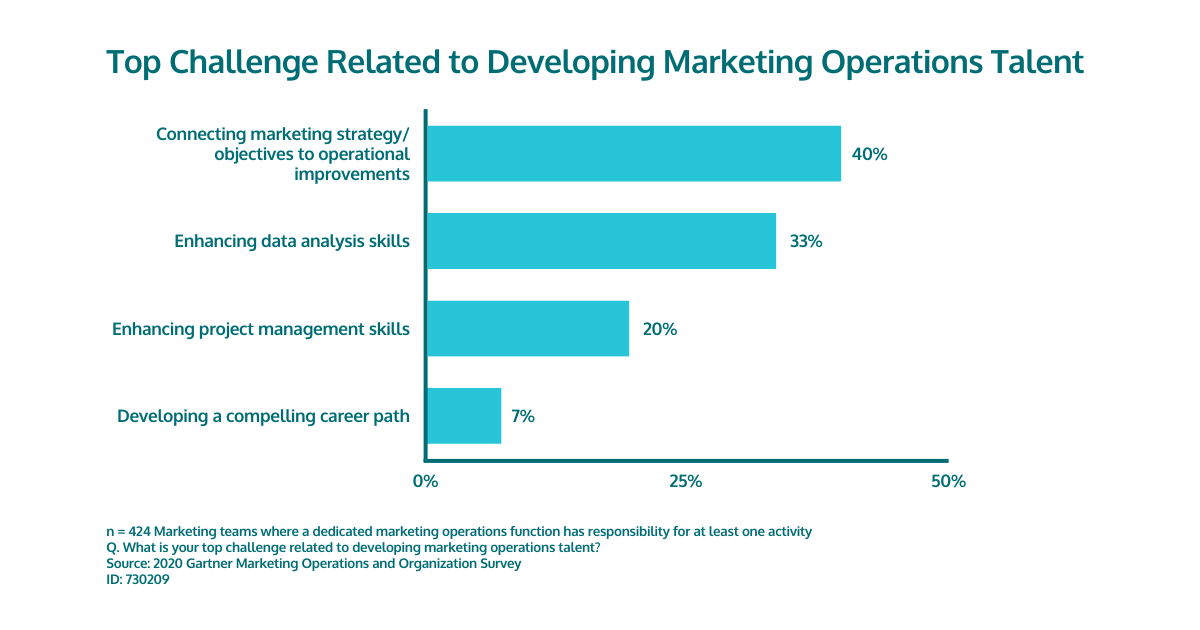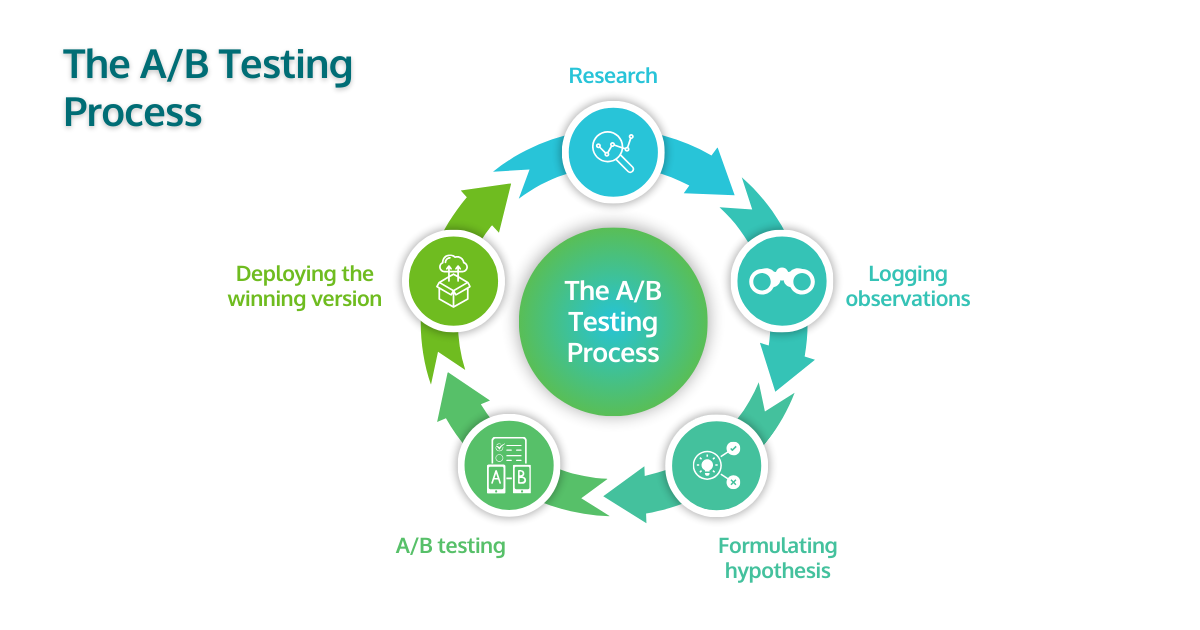-
- marketing agility
- Teams
- Organizations
- Education
- enterprise
- Articles
- Individuals
- Transformation
- Solution
- Leadership
- Getting Started
- business agility
- agile management
- going agile
- Frameworks
- agile mindset
- Agile Marketing Tools
- agile marketing journey
- organizational alignment
- Agile Marketers
- People
- Selection
- (Featured Posts)
- strategy
- agile journey
- Metrics and Data
- Kanban
- Resources
- Why Agile Marketing
- agile project management
- self-managing team
- Meetings
- Scrum
- agile adoption
- scaled agile marketing
- tactics
- scaled agile
- AI
- Agile Meetings
- agile marketing training
- agile takeaways
- Agile Leadership
- agile coach
- enterprise marketing agility
- Scrumban
- state of agile marketing
- team empowerment
- Intermediate
- agile marketing mindset
- agile marketing planning
- agile plan
- Individual
- Team
- Videos
- agile marketing
- kanban board
- Agile Marketing Terms
- agile transformation
- traditional marketing
- FAQ
- agile teams
- Agile Marketing Glossary
- CoE
- Scrumban
- agile
- agile marketer
- agile marketing case study
- agile marketing coaching
- agile marketing leaders
- agile marketing methodologies
- agile marketing metrics
- agile pilot
- agile sales
- agile team
- agile work breakdown
- cycle time
- employee satisfaction
- marketing value stream
- marketing-analytics
- remote teams
- sprints
- throughput
- work breakdown structure
- News
- agile brand
- agile marketing books
- agile marketing pilot
- agile marketing transformation
- agile review process
- agile team charter
- cost of delay
- hybrid framework
- pdca
- remote working
- scrum master
- stable agile teams
- stand ups
- startups
- team charter
- team morale
- user story
- value stream mapping
- visual workflow

Marketing isn’t getting any easier.
Every year competition increases alongside the raw complexity of the marketing space. For many of us, recent years have also brought decreased budgets without decreased expectations to go along with them.
In the face of these realities, trying to brute force your way to better marketing is only going to lead to burnout and frustration. Thriving in this kind of environment requires working smarter, not harder.
That begins with better skills.
Developing and honing the right marketing skills enables you to be more productive, effective, and even innovative in your marketing. It’s how you can stand out from the competition whether as a job applicant or a brand.
Plus, we’re marketers and we hate doing the same thing over and over. So if you’re looking to spice up your marketing or just your resume, these are the marketing skills you should be looking at developing in 2024 and beyond.
What Are Marketing Skills?
While it may seem like an obvious question, this list expands a bit on the standard marketing skills you might be used to seeing. This is because, at the most basic level, a marketing skill is simply any skill that helps you succeed in marketing.
In other words, marketing skills go beyond just managing campaigns or writing copy. They’re just as much about process management, creativity, and data analysis. Often this means you can frame seemingly unrelated skills as relevant for marketing with the right context.
For example, if you’re a digital nomad marketer, you might talk about being excellent at creative problem solving owing to the years spent figuring out how things work in various countries. So whether you’re thinking about the skills you have or the ones you can develop, it helps to get a bit outside the box to consider what you’re really trying to achieve in marketing.
How to Best Include Your Marketing Skills on a Resume
For those of you looking to harness your marketing skills to get a job, your skills are only as good as your ability to present them.
The first bit of advice to keep in mind is that a resume is fundamentally a communication tool, and all communication is about the audience. Any advice we can give you is always going to come second to considering your audience.
So when considering both which marketing skills you want to include and how you want to present them, always start by putting yourself in the shoes of the person (or algorithm) that will be reading it.
That might mean backing up your skills with certifications, or simply providing concrete examples of situations where you’ve demonstrated them. Often it also means trying to match the skills you list (and how you word them) closely to what the job description requests. In essence, you’re trying to turn your resume into an easy “yes” by making it simple for someone to quickly see you’re a great candidate.
So avoid being too abstract or wordy, ensuring the big picture is communicated at a glance. You can use your cover letter or an interview to go into more detail if necessary.
Before proceeding to learn which are the top marketing skills, take a moment to explore The Agile Marketing Credo — the new foundation for how modern marketers work with clarity, focus, and impact.
The Top Marketing Skills for 2024 and Beyond
Obviously “marketing” isn’t one single type of job, so we’ve broken down these skills into a few bigger categories.
Marketing Operations
Beginning with the unsung heroes of the marketing world: marketing operations. While the people writing the copy or managing the campaigns usually get more attention, the marketing operations skill set is vital for ensuring everything runs smoothly.
Data Management & Analysis
Modern marketing runs on data. For any marketing operations professional to be effective, they need to be able to gather, analyze, and present data. That’s the only way to consistently determine what processes need to be improved and test ideas for how to improve them. You might also want to mention any experience you have with experimental design and statistics.
Continuous Improvement
While this skill is a bit abstract, continuous improvement is at the core of what marketing operations is all about. This skill involves creating and managing systems for regularly evaluating and identifying processes that need improvement before testing solutions.
It’s worth emphasizing that you have the experience to do this instead of relying on ad hoc methods for fixing bad processes only when they become so bad they generate crises.
Value Stream Mapping
One of the most effective ways to create those systems of continuous improvement is through value stream mapping. This is a process where you visualize your entire work process, step by step, while determining the value added at each of those steps.

Doing so enables you to better identify blockers, bottlenecks, and generally understand how your processes really contribute value. Otherwise, it can be easy to expend significant resources addressing a process issue that actually has little impact on value delivery.
Project Management
Every marketing operations professional has to do a bit of project management. You may not be literally managing marketing projects, but the kind of process improvement and people management that makes up your day-to-day is very similar. That’s why, while it may not seem as intuitive, this is a vitally important marketing operations skill.
Customer Relationship Management (CRM)
Not all marketing operations professionals work with customers, but the skills involved can apply just as well as internal stakeholders. A strong understanding of CRM is also useful for helping improve CRM processes within marketing.
Reporting
Gartner’s Marketing Operations and Organization Survey has found that the single biggest challenge related to developing marketing operations talent is connecting operations improvements to overall strategy. It’s a bit of a “if marketing operations improves a process and nobody notices, did it really happen?” kind of situation.

The ability to use reporting to create Key Performance Indicators (KPIs) which closely tie in with broader organizational goals. Few things make you more attractive as a marketing operations applicant than clearly showing how you’ll help leaders achieve their strategic goals, so examples of how you can do this through reporting will go a long way.
Before moving on to explore the must-have social media marketing skills, why don't you take a second and get our Agile Marketing Quick Start Guide?
Social Media Marketing
Navigating the intense and fast-paced world of social media marketing certainly requires its own unique set of skills. So what should social media marketers look towards when developing their abilities?
Communication
Whether it’s communicating with your audiences or with your internal stakeholders, social media marketers need to understand what people find valuable and communicate that value. In particular, the value of social media marketing can be abstract when you’re not selling products directly, so the ability to clearly explain why your marketing is valuable is vital.
You can also mention your ability to use visualization tools to aid in this kind of internal communication.
Prioritization
Most social media marketers have a very long list of possible actions to take on any given day. They can review performance data, set up tests, create new content, work on reporting, etc. That’s why prioritization is such an important skill for this kind of marketing.
This might come in the form of a backlog, ideally one visible to all your colleagues, or in your own personal system for prioritizing tasks. Either way, making it clear you’re able to effectively identify and tackle the tasks that are going to deliver the greatest value to your stakeholders goes a long way.
A/B Testing
Even someone who’s otherwise a masterful social media marketer can’t really be effective without the ability to conduct proper A/B tests. With all the variables involved, you need to be able to test your ideas properly. Badly structured tests can easily lead you in the wrong direction.

So you’ll want to mention skills like A/B testing, experimental design, or even statistical analysis to show that you’re able to drive your campaigns with quality data.
Community Management
Social media marketing is often about more than just throwing out posts and seeing how they perform. Communities are tremendously valuable in marketing because they create greater loyalty in customers, enable marketers to get quality feedback, and can even generate new ideas. But bad management can destroy even vibrant communities, so demonstrating you have the skills and experience to cultivate one should be a top priority for social media marketers.
PPC Marketing
With recent changes in privacy rules, PPC marketing is changing faster than it has in years. For that reason, it’s never been more important for PPC marketers to demonstrate they have the skills to be adaptable and creative in solving the new challenges those privacy rules bring.
Optimization
Optimizing campaigns has always been the bread and butter of PPC marketing and that isn’t going to change anytime soon. You need to show you have the ability to identify ways to test ideas and improve your ads and landing pages in a structured way. That structure is what enables you to learn from your optimization and get better over time instead of throwing things at a wall to see what sticks.
Experimentation
The ability to design and run effective experiments is foundational to good PPC marketing. It’s the only way to separate signal from noise and figure out what will actually drive value for your stakeholders. And considering how often the PPC landscape changes, you can’t simply rest on your laurels and rely on the same old strategies forever.
Beyond mentioning experimentation as a skill, consider highlighting how you go through the process of setting up and using experiments in your overall PPC strategy.
Keyword Research
Every PPC marketer needs to know how to do keyword research. Without knowing what your audience is searching for, you’re going to have a hard time getting in front of them at the right time and place. While this is sometimes done by other marketers, it’s nice to show you can act as a one-person PPC army and handle it all yourself if needed.
Data Analysis
One thing that’s never really changed about PPC marketing is the amount of data it generates. The problem comes when PPC marketers don’t have the ability to properly analyze that data and turn it into useful insights. You can also consider highlighting qualitative and quantitative analysis separately as both can be nice to have. Also consider sharing some details about your approach to marketing metrics as a part of this skill.
Organization
With the complexity of PPC campaigns it’s important to manage the assets, data, schedule for monitoring them, etc. Even with simpler campaigns, this all can add up, so the ability to stay organized is exceptionally important. You can highlight this marketing skill by mentioning the number of campaigns you’ve successfully managed at once.
Copywriting
While this is another skill that might occasionally be outsourced to a copywriter, it’s far easier for PPC marketers themselves to have the ability to write good ad copy. By removing the step of handing over work, you end up with a simpler and more effective process overall, so even if this isn’t your strong suit it’s worth developing as a marketing skill.
Content Marketing
Even with the onset of powerful generative AI tools, content marketing remains a potent force. But with competition in the space always on the rise, it’s more important than ever to develop the right skillset to stand out in the job market and excel once you’re hired.
Writing
It’s obvious but there’s no getting around how important quality writing is for content marketing. Importantly, writing as a marketing skill isn’t limited to the ability to produce good copy, but to do so consistently. We all know how tough writers block can be, so demonstrating that you’re able to regularly put out quality content goes a very long way.

Audience Analysis
Getting back to all the competition in the content marketing space, poor quality generic content is worse than useless today. Quality is essential for getting long-term results and the only way to consistently produce quality content is really understanding your audience.
That’s why content marketers should highlight their ability to conduct audience analysis, create customer profiles, and generally create content that’s targeted and effective.
Qualitative Analysis
While quantitative analysis can also be useful, the ability to look at large amounts of content and identify opportunities is essential for great content marketing. This marketing skill is also about your ability to synthesize large amounts of text efficiently to create your own unique takes. A good way to highlight this skill would be to share some of your best pieces of content that demonstrate great analysis of complex topics.
Creative Thinking
We can’t say it enough times, generic content doesn’t get results. That’s why creativity is a fundamental marketing skill today. As a skill, creativity influences how you approach everything from keyword research to how you position your brand through content.
Likewise, you need to be able to come up with creative ways to approach those keywords, delight your audience, and find opportunities to improve your site’s rankings. Content marketing strategies are always evolving and only creativity can ensure you remain relevant and competitive.
Keyword Research
While the days of basic keyword stuffing are long over, the ability to do quality keyword research remains foundational for good content marketing. Beyond listing the skill, consider including examples of how your keyword research has translated into better marketing strategies in the past. It’s also worth including which keyword research tools you’re most adept at, as some companies may not be interested in switching from say Moz to Ahrefs just for you.
Email Marketing
Larger organizations may have dedicated email marketers, but on smaller teams it’s useful for content professionals to have this skill as well. Because content is one of the most common things many organizations promote through email campaigns, it’s helpful for the content writers to also be ready to promote their own work.
Editing
Like with email marketing, this is a skill that might be done by another person but it’s always good to have in your repertoire. Many marketing teams rely on their content professionals to edit everyone else’s work, so being adept at both copy editing and the more creative side of honing the work of others goes a long way.
Marketing Management
The last category of marketing skills we want to highlight is those of marketing managers. Overall, it’s important to remember that the style of marketing management companies are looking for is changing as old-school command and control managers are replaced by more supportive ones. So besides your skillset, consider how to demonstrate what type of manager you are.
Project Management
Marketing managers are always project managers of a sort. From finding the best way to support the people on the teams they manage to optimizing processes to ensure deadlines are kept, there’s a lot to project management as a skill. That’s why it might be useful to break this down a bit into more granular marketing skills, but it can also be listed as a single skill in a pinch.

Reporting
A major element of the marketing manager role is condensing and presenting information from their team so it can be used by other people in the organization. This kind of knowledge sharing has the potential to vastly increase the amount of value marketing can create for the organization as a whole. That’s why effective reporting is a great marketing skill to develop and include on a resume.
Continuous Improvement
While this is often left to marketing operations, other times marketing managers might be in charge of process improvements. In these cases it’s extremely important you understand how to put systems of continuous improvement into place instead of relying on ad hoc processes to put out fires when they arise. To anyone looking to hire a marketing manager, this communicates that you are proactive instead of reactive when it comes to improving how your teams function.
Funnels
True, any marketer should have at least a basic understanding of sales or marketing funnels, it’s particularly important for marketing managers. Being able to see the big picture and understand how all the work individual marketers do fits into a broader funnel helps managers ensure all that work translates into something greater than the sum of its parts.
Effective Planning
So many marketers have by this point taken bad planning as a given. The team assumes a project will be ready by a specific date and everyone just shrugs as that deadline flies by. But marketing managers can and should be able to do more effective planning.
In particular, practices like planning poker can go a long way towards improving how you accurately estimate and plan for projects. If you can, try including some statistics about how your planning has performed along with this skill to show how effective you really are.
Budgeting
Marketing budgets are down these days, meaning the ability to effectively budget has never been more important. Showing that you know how to ensure projects don’t run over and that you can efficiently maximize ROI for your stakeholders will go a long way towards standing out as a marketing manager.
Capacity Management
While this marketing skill is closely related to budgeting and planning, it’s also worth highlighting on its own. Effective capacity management isn’t just about avoiding overcommitting and missing deadlines, it also helps avoid burnout and build rapport with your team members. Working at full capacity just isn’t effective, so making it clear you can ensure your team runs at the right pace is important.
Problem Solving
There’s hardly a more fundamental marketing skill than simple problem solving. Considering the pace at which things change in the marketing world, there’s always a new challenge to tackle. So consider sharing examples of occasions when you’ve demonstrated your ability to tackle difficult marketing problems to show your skills.
Responsiveness to Change
Speaking of change, even the world’s best marketing manager isn’t going to remain effective for long if they’re not willing to embrace it. Again examples will really go a long way towards making this marketing skill stand out. Mention instances when you faced a daunting marketing challenge and were able to adapt to meet it. Talk about some marketing blogs, podcasts, or newsletters you use to stay on top of what’s happening.
Communication
While this particular marketing skill doesn’t get as much attention as many more technical ones, it’s absolutely essential for good marketing management. You need to be able to effectively delegate work, collaborate with team members and stakeholders, and ensure everyone understands what needs to get done. Of course the best way to show how good of a communicator you are is to create a resume that effectively communicates your marketing skills, so don’t neglect that!
Looking to Enhance Your Marketing Skills?
Overall, obtaining and presenting the right marketing skills begins with thinking about employers the way you would think about a prospective customer. Try to put yourself in their shoes, understand their challenges and what they value. Then, craft your skillset to best deliver that value.
In particular, regardless of the type of marketer you are, it’s important to show that you’re an adaptable, resilient, and effective communicator able to solve problems and stay on top of your work. These are core marketing skills that all of us should always try to develop and hone.
But if you’re looking to build your marketing skill set up further, you may be wondering how to do so without resorting to expensive and time-consuming courses. That’s why we’ve created dozens of small, practical, Agile marketing training lessons covering everything from prioritization to being more customer-centric.
Based on years of experience helping real marketing teams address real challenges, they offer videos, activities, and quizzes to help you really think through concepts and get past the surface level. Best of all, each lesson can be completed in about 30 minutes. So try out our carabiner lessons today and start building a stronger marketing skill set.
Before you move on, don't forget to get your copy of the Agile Marketing Quick Start Guide.
Topics discussed
Improve your Marketing Ops every week
Subscribe to our blog to get insights sent directly to your inbox.



